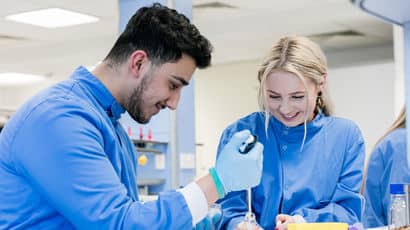Studentship opportunities
Learn more about studentship opportunities at the Doctoral Academy.
How studentships work
A studentship will usually cover tuition fees for three years as well as pay the student a stipend for three years, paid monthly. Visit the relevant project page to find details of what is covered for that studentship. The project area and sometimes the project itself will already be decided and you will need to submit your application by the set deadline.
Being in receipt of a studentship might have tax/benefits implications for you, ensure that you have checked how this may effect your current circumstances.
Applications will be shortlisted for interview and following the interview, the successful candidate(s) will be awarded the studentship.
The Doctoral Academy is delighted to announce the availability of PhD studentships in the following colleges, which will be awarded to high-calibre graduates in the areas of research excellence detailed.

Opportunities by college
College of Arts, Technology and Environment
- Wearable Robotics for Mobility and Independence. Reference: 2627-OCT-CATE01 – closing date 15 March 2026.
- Cyber Security. Reference 2627-OCT-CATE02 - closing date 12 April 2026
College of Business and Law
- There are currently no studentships available.
College of Health, Science and Society
- There are currently no studentships available.
Self-funded research
If there are no suitable studentships in your research area, you have the opportunity to put forward your own research proposal on a self-funding basis. This includes if you are being sponsored by an organisation external to UWE Bristol such as your employer. You may also be eligible for the UK Government Postgraduate Doctoral Loan.
All opportunities
View an A-Z of opportunities, including recently closed ones
You may also be interested in

Postgraduate research study
Postgraduate research at UWE Bristol offers you the opportunity to contribute to our leading edge research and work alongside our international experts.

Fees and funding
View Doctoral Academy tuition fees, project fees, completion fees and resubmission fees.

Support during your degree
Support from the Doctoral Academy available to postgraduate researchers at UWE Bristol.

Contact the Doctoral Academy
Ways to contact the Doctoral Academy, from postgraduate research support to submitting your thesis.
